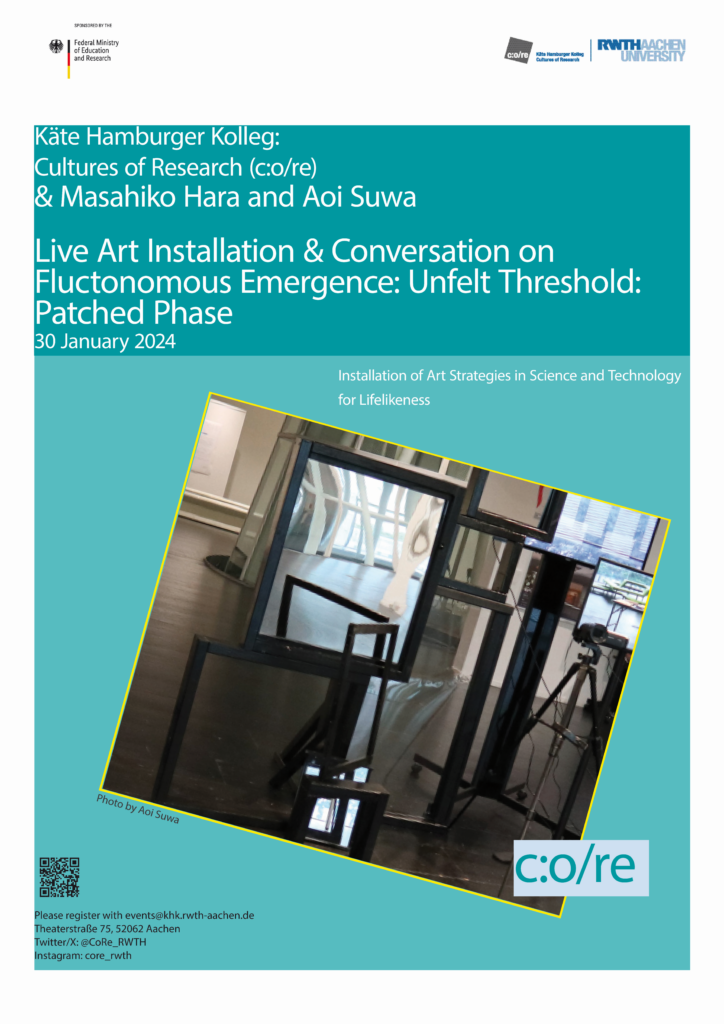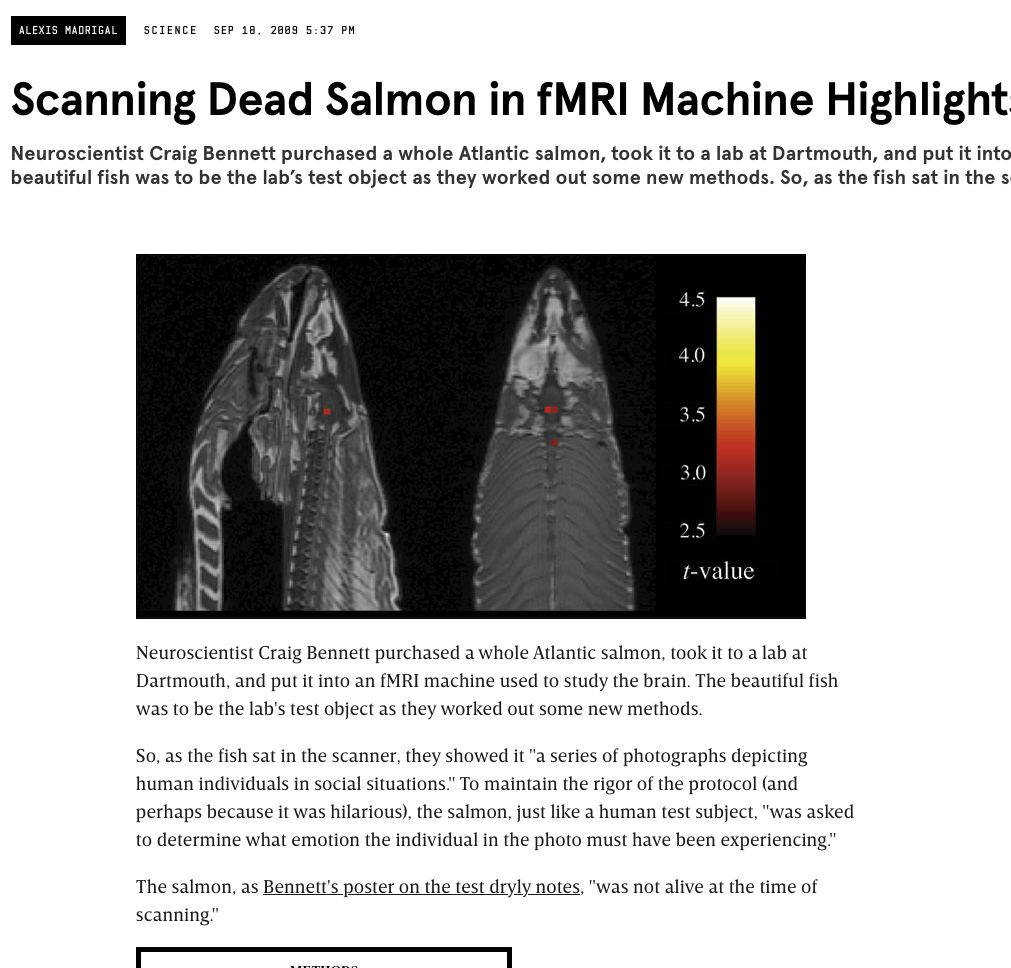c:o/re Movie Nights

We are looking forward to the collaboration with the film studio of RWTH Aachen University! As part of the lecture series of the Käte Hamburger Kolleg: Cultures of Research (c:o/re) in the summer semester “Lifelikeness” we will show two movies:
May 29: Her by Spike Jonze (2013), at 8:15 pm. As an introduction before the film, philosopher Ben Woodard (ICI Berlin) will give a lecture entitled “Ideal Locale – her and the envelope function of idealist predication”. The lecture will take place on May 29 at 3 pm at Theaterstraße 75. Please send us an email if you would like to come to the lecture: events@khk.rwth-aachen.de
June 11:. I’m a Cyborg, But That’s OK by Park Chan-wook. The film will be preceded by a short introduction and followed by a discussion moderated by the Käte Hamburger Kolleg: Cultures of Research.
By “Lifelikeness” we mean the representation and/or imitation of living beings in science and technology in fields such as robotics, synthetic biology or AI and neuromorphic computing. We ask how their increasing complexity mimics not only a fixed notion of life, but also the understanding of “life” as such.
Further information on the lecture series can be found on this page.

Unfelt Treshold: Art Installation & Conversation on Fluctonomous Emergence
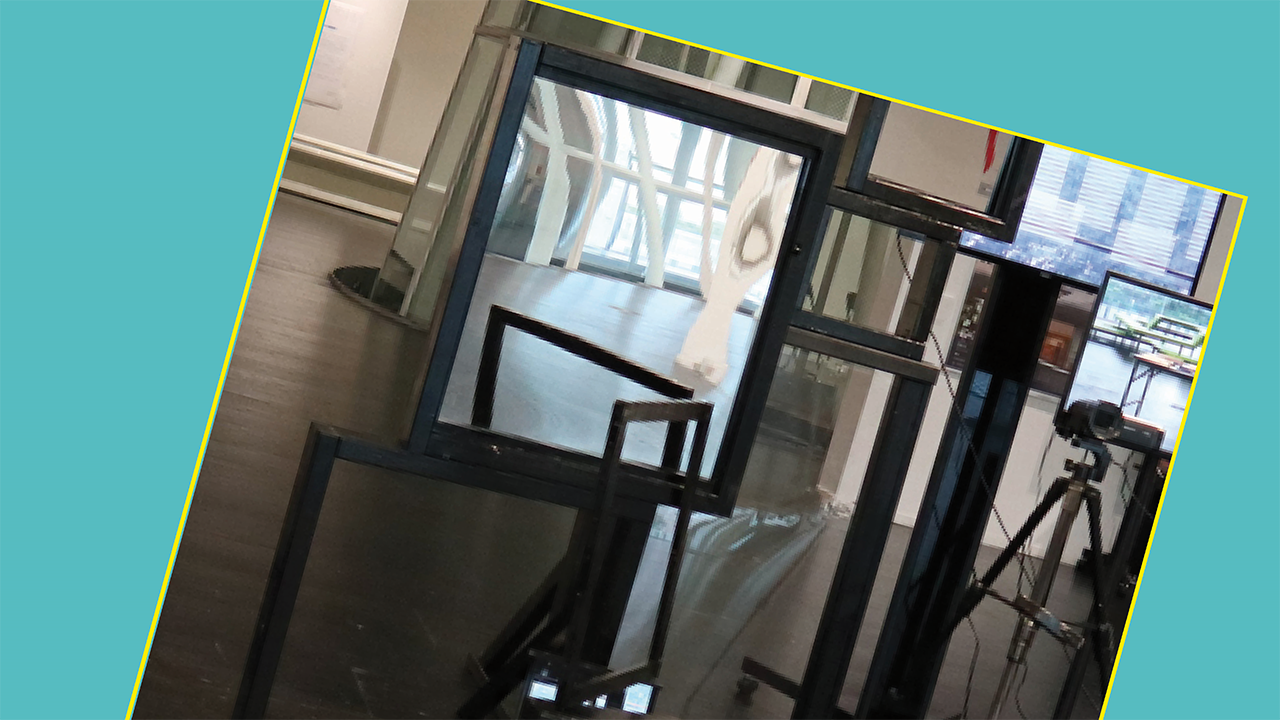
Unfelt Threshold is a project in which Japanese artist Aoi Suwa is indirectly linking together various pieces of objects and images, exhibiting the creations that she has produced over the years. As part of the project, c:o/re Senior Fellow Masahiko Hara and Aoi Suwa will stage a live installation at RWTH Aachen University’s Käte Hamburger Kolleg: Cultures of Research (c:o/re) and engage in a conversation on “Fluctonomous Emergence”, a term coined by Masahiko Hara. His research focuses on the integration of art strategies in science and technology and introduces a new concept of natural intelligence based on the emergent functions of autonomous ambiguous systems that exhibit fluctuant behavior.
This project stems from the concept of “shiki-ik” (識閾, the threshold of consciousness), the boundary where sensations and reactions occur in response to stimuli. The threshold through which transitions occur from the unconscious to the conscious, and vice versa, is the gateway of shifting between consciousness and unconsciousness.
Aoi Suwa continues to employ experimental techniques to create works focused on phenomena that can only be witnessed in situ, developing what could be described as an approach aimed at perceiving thresholds that emerge through the process of traversing back and forth between the realms of the perceivable/imperceivable and conscious/unconscious.
Through this project, we would like to explore its potential as a means of expressing the complexity and the lifelikeness of our current age and seek to reconsider our sustainable social systems surrounded by both living and non-living systems.
The installation can be viewed until 22 February 2024 by prior registration with events@khk.rwth-aachen.de.
Toxic Material(itie)s: Eco-Material Entanglements in Art
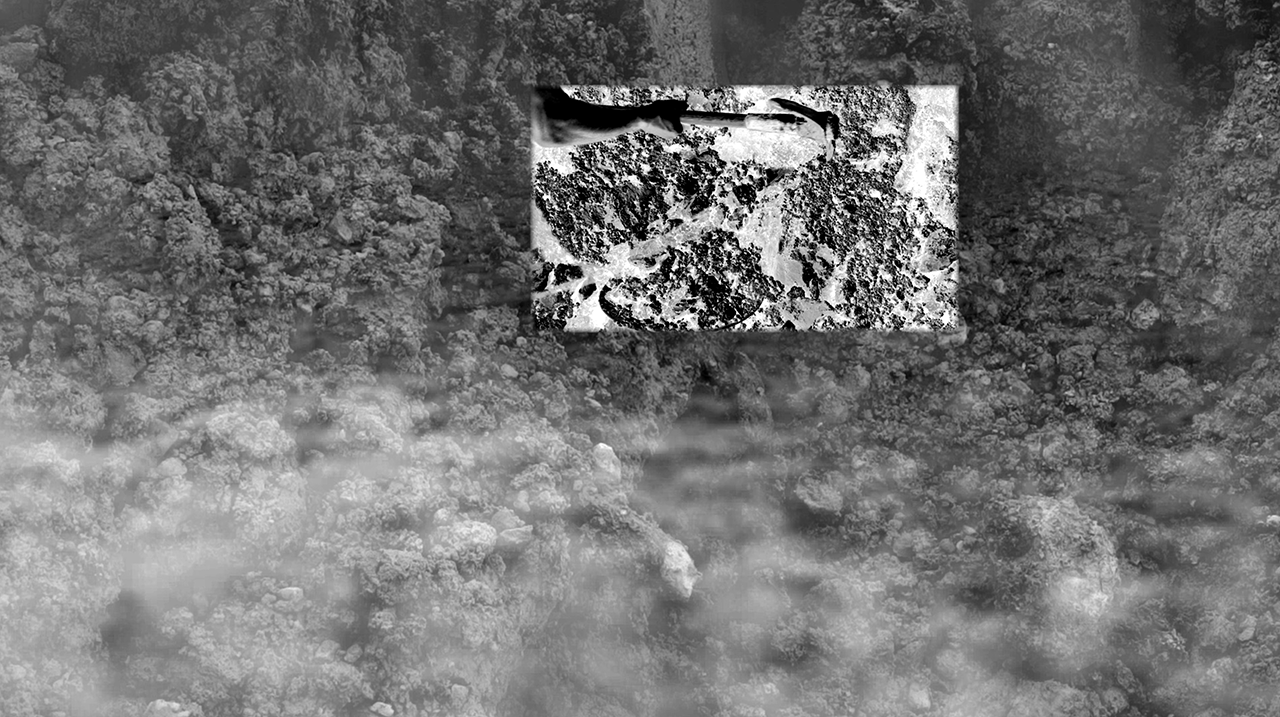
Workshop at the Käte Hamburger Kolleg: Cultures of Research (c:o/re)
6 – 7 December 2023
Organized by
Käte Hamburger Kolleg: Cultures of Research (c:o/re) &
Christian Berger (Universität Siegen), Ruby de Vos (University of Groningen),
Kyveli Mavrokordopoulou (Vrije Universiteit Amsterdam)
Our workshop sets out from the obvious, yet underexplored assumption, that much of the very stuff that art is made of is toxic. Whether working in the studio, in the dark room, in the quarry, or at contaminated sites, artists have been, and continue to be, exposed to a wide range of toxic materials. But exposure always goes hand in hand with its inevitable corollary, pollution—from the dumped toxic waste generated by the production of photographic materials to the air and water pollution generated by marble extraction. The toxicity of artistic materials extends far beyond the hazards of the artist’s job—they are part of larger environmental issues. So what can we learn when we explore artworks through the lens of their materiality within an expanded frame that is attentive to their art historical as well as environmental and sociopolitical context?
See the full program here.
To attend, please register with events@khk.rwth-aachen.de

Lecture and discussion with Phil MacNaghten: The knowledge politics of making anticipatory knowledge
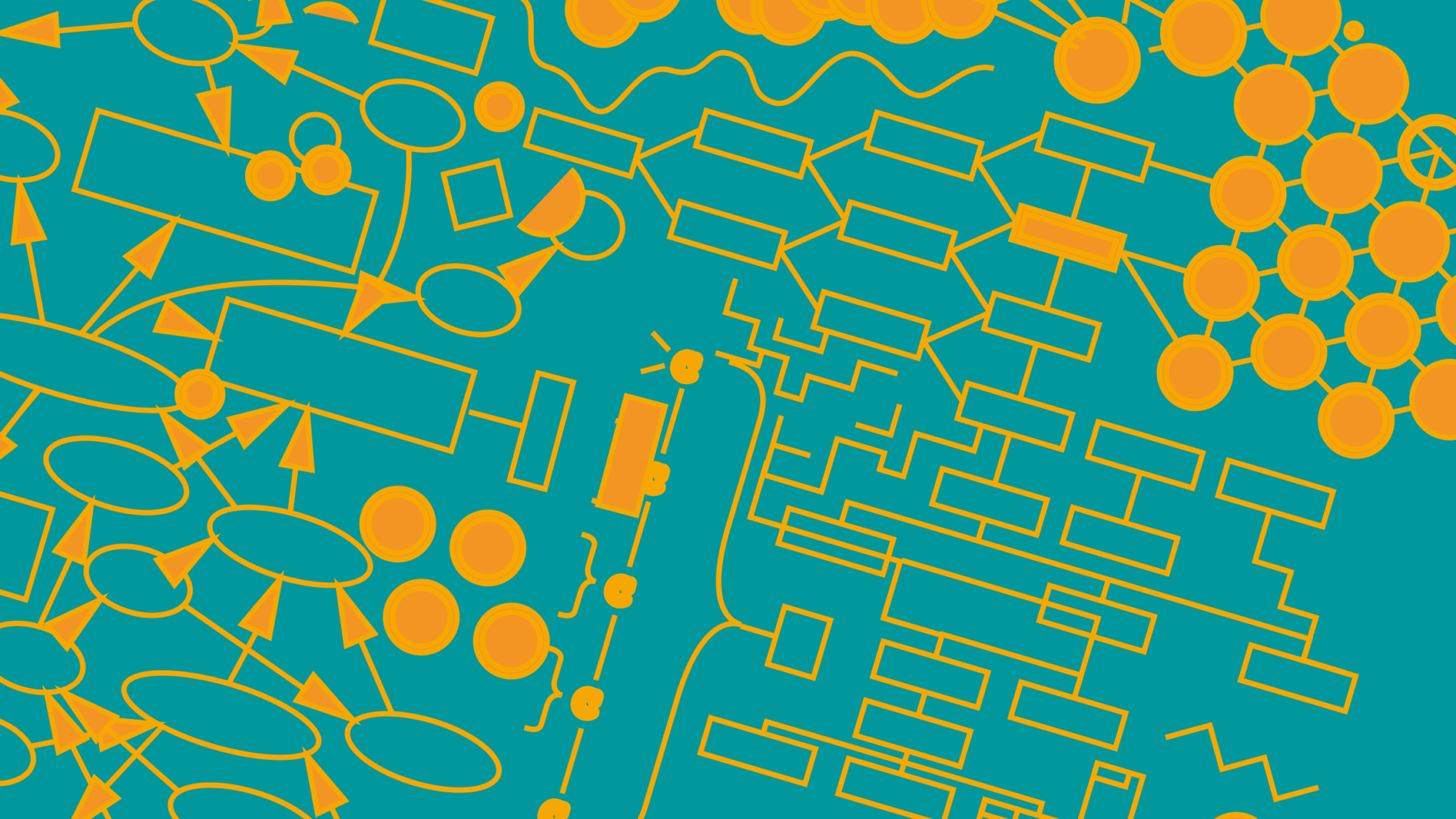
On October 12, Phil Macnaghten will give a talk at c:o/re about The knowledge politics of making anticipatory knowledge. This event is part of the 5th STS-Forum at RWTH Aachen University.
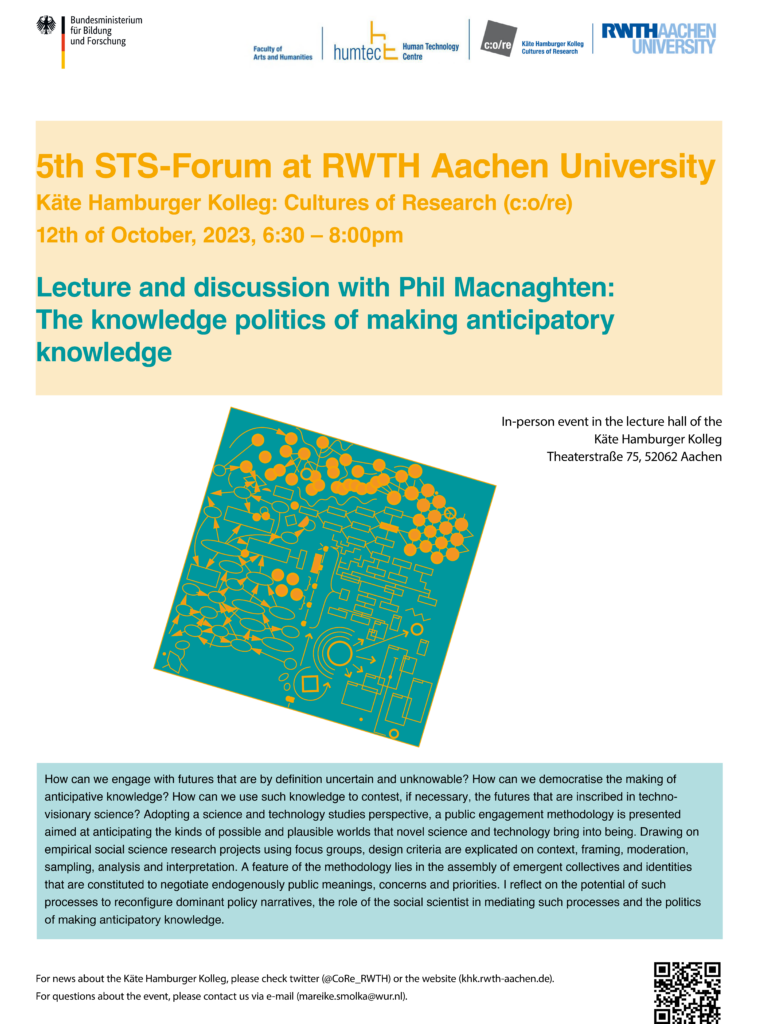
Tagung: Briefe des 15. Jahrhunderts als Quellen für interkulturelle Kontakte zwischen Italien und dem Osmanischen Reich
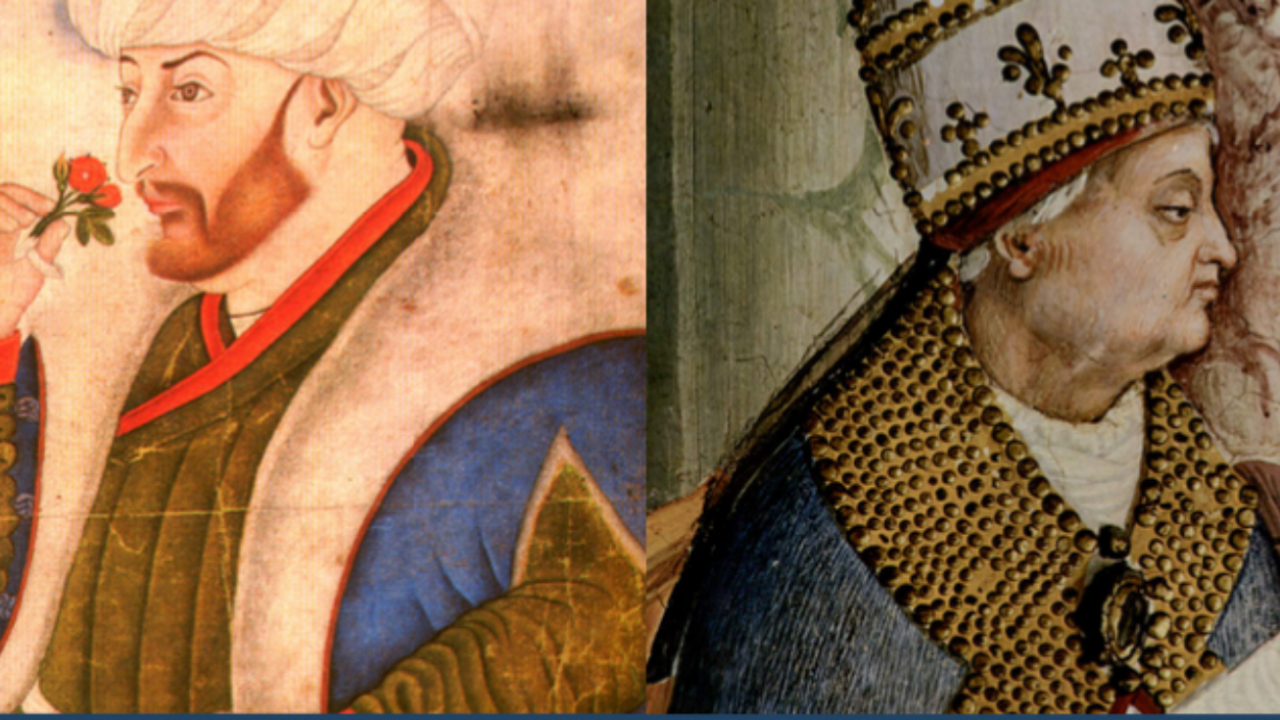
From the 19th to 20th October 2023, a conference on “Briefe des 15. Jahrhunderts als Quellen für interkulturelle Kontakte zwischen Italien und dem Osmanischen Reich” will take place at c:o/re, organized by Florian Hartmann.
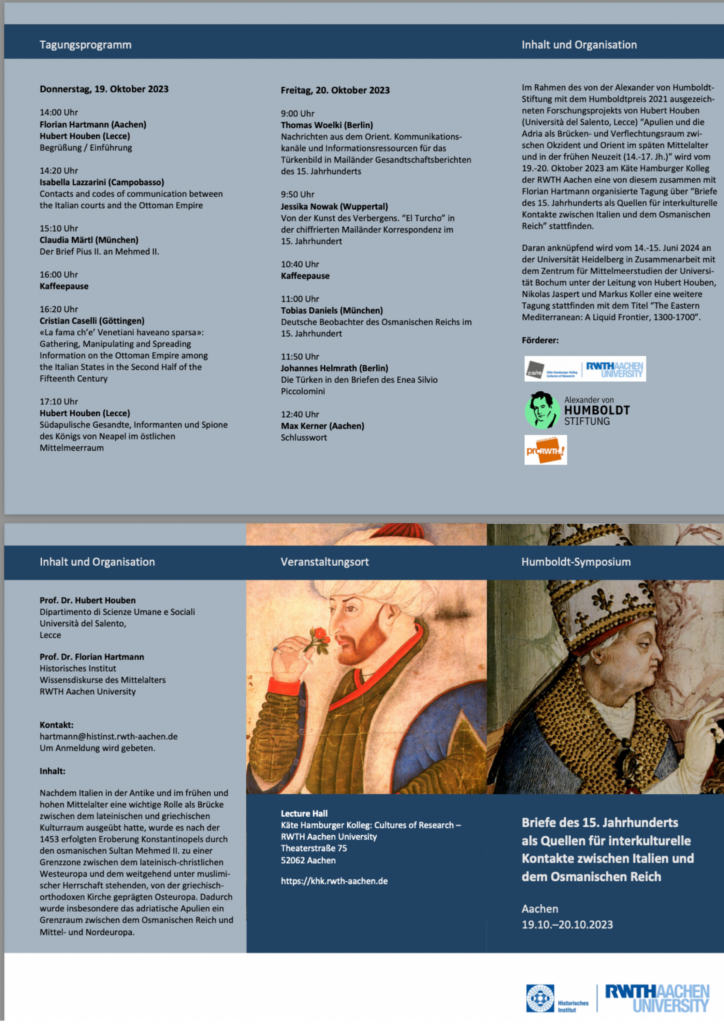
SFU Workshop on Transdisciplinary Pathways in Educational Research: Learning, ecology, media and beyond
On April 25th c:ore team member Alin Olteanu will be joining Natasa Lackovic (Lancaster University) and Cary Campbell (Simon Fraser University) for an online workshop, organized by the Research Hub @ Faculty of Education of Simon Fraser University, on Transdisciplinary Pathways in Educational Research: Learning, ecology, media and beyond. To attend, please register through the Simon Fraser University website, where you can also find more information. The description of the workshop is also below.
Transdisciplinary Pathways in Educational Research: Learning, ecology, media and beyond
The potential of transdisciplinary research and education has been lauded and discussed for decades. Despite often lofty promises, many have remarked on the lack of meaningful transdisciplinary research and teaching—ironically in universities, where it is most expected. Very little research presents or explores conceptual-philosophical frameworks (or pathways) for how to study and engage in transdisciplinary inquiry and questioning. Our workshop aims to address this theory gap, building from our team’s research expertise in educational semiotics and uniting theoretical perspectives from bio-semiotics, multimodality, and new socio-materiality studies.
Participants and presenters will collaboratively articulate transdisciplinary problems by distinguishing transdisciplinary methodologies and theoretical frameworks from related inter- and cross-disciplinary approaches. We specifically address transdisciplinary challenges associated with climate crisis (the Anthropocene) and the rapid proliferation of digital-media technologies, focusing on the continuity of environmental and embodied learning and digital media-learning.
Navigating Interdisciplinarity
If you would like to know more about the Navigating Interdiscplinarity workshop, which was organized by c:o/re, together with CAPAS and the Marsilius Kolleg Heidelberg, which hosted it, the CAPAS newsletter features an insightful article, here. You can also see our previous reflexion on the workshop, on the c:o/re website, here.
Models of complex systems as scientific-public boundary objects: The case of climate change. Complexity and Transdisciplinarity Graduate School of the Center for Advanced Studies (Aix-Marseille University), February 27-28
On February 27-28, 2023, the Complexity and Transdisciplinarity Graduate School of the Center for Advanced Studies (IMéRA), Aix-Marseille University is hosting an event on “Models of complex systems as scientific-public boundary objects. The case of climate change“, organized by Gabriele Gramelsberger and Alexandre Hocquet (Lorraine University, c:o/re alumni). To register, kindly contact Solenne Bruhl (solenne.BRUHL@univ-amu.fr). The event will feature the following talks:
27.2.2023, 14-16h Complex systems, climate modeling and managing of uncertainties – Managing the complexity of knowledge production
Gabriele Gramelsberger
28.2.2023, 10-12h Community models, standards and platforms: Managing the complexity of global collaboration and policy
Gabriele Gramelsberger
28.2.2023, 14-16h Research software: Managing the complexity of collaborative programming
Gabriele Gramelsberger & Alexandre Hocquet
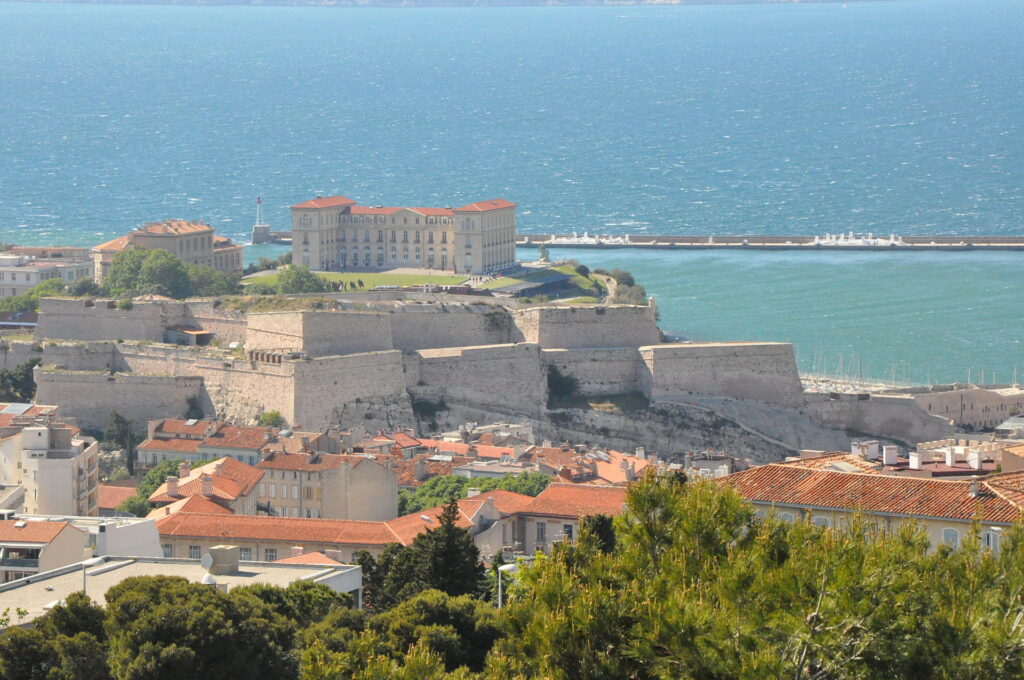
Talk by Stefan Böschen at the Austrian Academy of Sciences: Engineering turn? The shift in research cultures as a challenge for science research
On Tuesday, March 28, Stefan Böschen is presenting the work of c:o/re at the Institute for Technology Assessment at the Austrian Academy of Sciences. You can find the abstract and practical information on how to register on the website of the Institute for Technology Assessment, here.
Torsten H. Voigt on voodoo science, dead salmons and the Human Brain
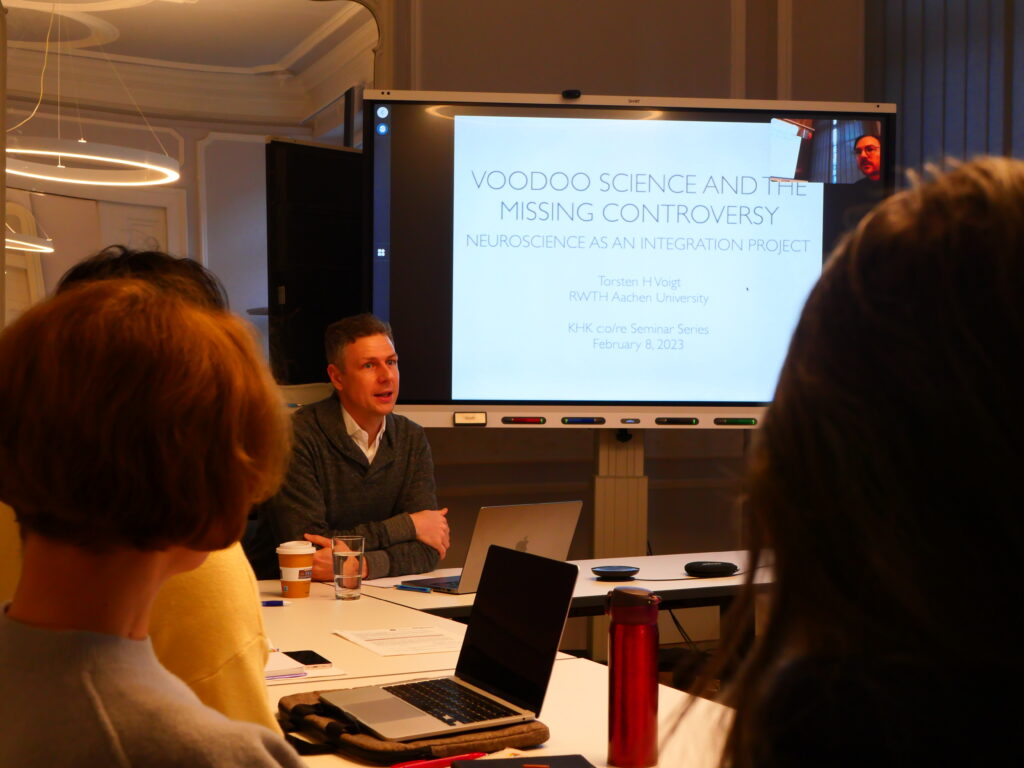
On February 7, Professor Torsten H. Voigt, the Dean of the Faculty of Arts and Humanities at RWTH Aachen University, delivered a talk in the c:o/re lecture series on what has been referred to as “Voodoo science” . Professor Voigt argued that, as in science and philosophy in general, controversy functions as a driver for advancement and innovation in neuroscience. However, he explained, neuroscience as a discipline and community exhibits instrumental rationality in managing and avoiding meaningful controversy. This led to what may be termed an eclipse of reason, damaging or even destroying progress in the scientific field.
Neuroscience is enjoying great popularity, both within academia and in pop culture. and popular science. During the 1980s neuroscience cognitive became the new science of mind, by having incorporated molecular biology. This resulted in a study on a molecular level of how we think, feel and learn. Seen in this way, advertising of consumer goods, for example, reflects a connection established in pop culture between human capacities for creativity and the brain organ. These construals are not only employed in somewhat amusing ways in advertising, but they point to an unjustified optimism in academia. One reason for which this may be allowed, but which also raises suspicions about neuroscientific methods, might have to do with the very low reproducibility herein.
An important example that illustrates this type of process leading to an eclipse of reason, as Voigt argues, is observed in how the otherwise noted study by Vul et al. (2009) was largely ignored in neuroscientific research. The reluctance regarding this study was arguably met with from the start is suggested by the respective journal’s editorial board recommnending removing the expression “voodoo correlatons” from the title of the paper, as initially proposed by the authors.
Vul et al. (2009) observe mysteriously high correlations are claimed in neuroscientific research. This is explained by the fact that many experiments looked at a specific brain region instead of the whole brain as such in relation to behaviour. Despite drawing attention, the study has been ignored (low number of citations) by the community of neuroscientific researchers.
A prototype for signaling controversial matters in neuroscience, setting the tone of doing so in a controversial manner, is the famous “dead salmon” paper by Bennett et al. (2009), who ironically criticised neuroscientific methods by claiming correlations by observing supposed neural activity through fMRI in a dead salmon. The salmon, which “was not alive at the time of scanning”, “was shown a series of photographs depicting individuals in social situations with a specified emotional valence.” As neural activity could arguably be noticed in the image resulting from the scanning, the authors ironically claimed neural correlates of interspecies perspective taking”.
Another example that displays the eclipse of reason tendencies in neuroscience regards the Human Brain project, massively funded by the European Union. Arguably, the Human Brain project is not so much about the brain, as much as it turned out to be an IT infrastructure development project (Nature 2015). With such an example in mind, Voigt construes neuroscience, broadly, as an integration project
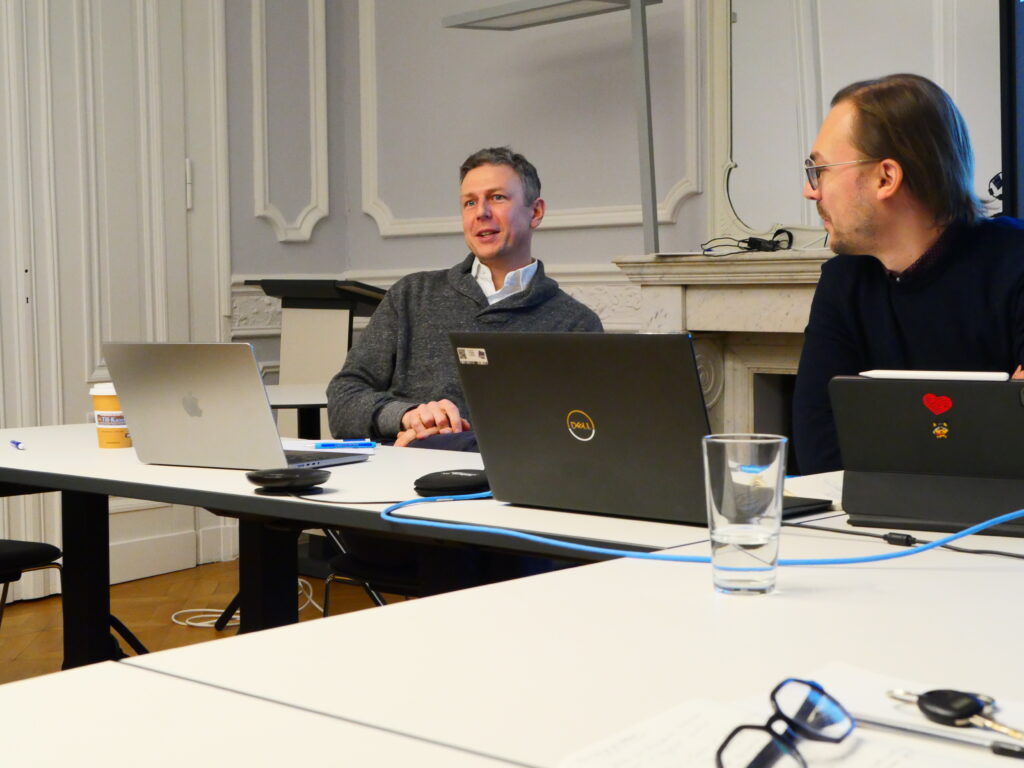
References
Vul, E., Harris, C., Winkielman, P., Pashler, H. 2009. Puzzlingly High Correlations in fMRI Studies of Emotion, Personality, and Social Cognition. Perspect. Pychol. Sci. 4(3):274-90.
Rethinking the brain. 2015. Nature 519, 389. https://doi.org/10.1038/519389a
Bennett, C.M., Miller, M.B., Wolford, G.L. 2009. Neural correlates of interspecies perspective taking in the post-mortem Atlantic Salmon: an argument for multiple comparisons correction. NeuroImage, 47, S125.


